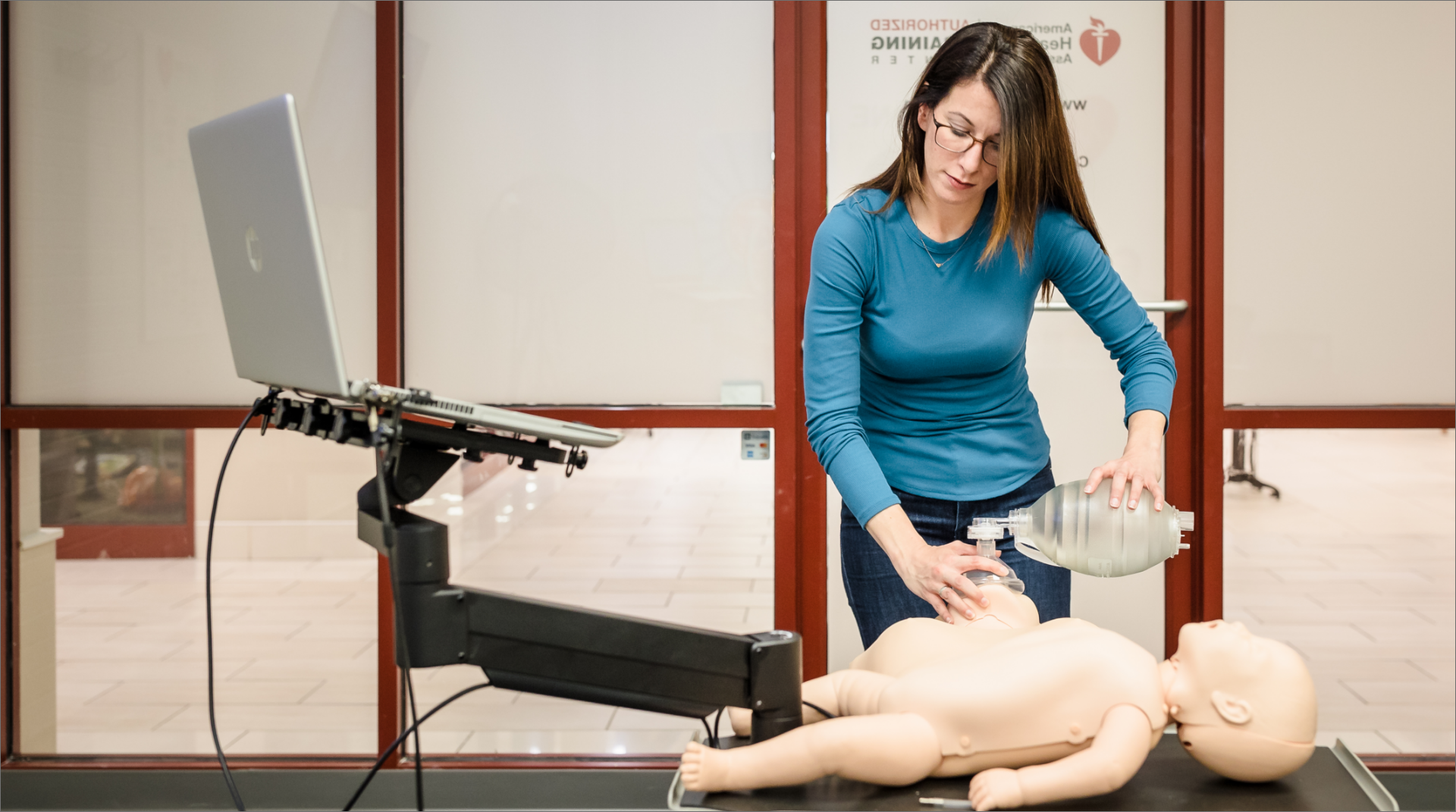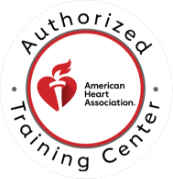

CPR Resource Center
The most comprehensive library of emergency training resources — including videos, articles, downloads, and more.


The most comprehensive library of emergency training resources — including videos, articles, downloads, and more.
Emergency Cardiac Care News Digest is a weekly email of assorted current events and news related to emergency cardiac care and resuscitation. Produced by Code One Training Solutions, Emergency Cardiac Care News Digest is published every Friday throughout the year.

Remember, we are all part of something larger than ourselves. We are part of a globally interconnected society.
The Global Resuscitation Alliance works to understand and spread implementation science in resuscitation and to improve systems of care everywhere – especially in low-resource settings.
Hear from experts who will share insights on emergency pre-hospital care. They will also look into the future as we explore new, creative, innovative ways to save lives from cardiac arrest.
GRA webinars provide a unique opportunity to stay updated, connect with experts, and make a positive impact on cardiac arrest outcomes. Whether you’re a healthcare professional, researcher, policymaker, or advocate, this webinar will offer valuable insights in the pursuit of emergency pre-hospital care around the world.
During this webinar, you will hear from experts who will share insight on emergency stroke care, pediatric and in-hospital resuscitation. We will also look into the future as we explore new, creative, innovative ways to save lives from cardiac arrest.
Can’t attend live? You should still register to access the on-demand recording!
For resuscitation providers, educators, CPR instructors, trainers, survivors, advocates and more worldwide passionate about saving lives, CASSummit is the largest and only conference of its kind providing the opportunity to learn from the widest array of resuscitation experts on the latest science, education and implementation across the full chain of survival.
Here’s what’s happening:
In the fall of 2011, during my senior storytelling class at Indiana University, I read a piece in Sports Illustrated called “The Boy Who Died of Football,” about a Louisville-area athlete who collapsed and died during a hot summer practice. His name was Max Gilpin.
Two years later, a football player from my Indiana hometown collapsed and died during practice. His name was Jake West, and he had an undetected heart condition.
I immediately thought of that story headline. Now I knew of two boys who “died of football.”
That didn’t seem normal.
Across the next decade as a sports reporter, I kept coming across more headlines of athletes who died.
AED registries serve as the backbone of many novel solutions developed to facilitate rapid identification of the nearest resuscitation-ready AED in an emergency. AED registries, holding information on location and accessibility, may facilitate AED retrieval by enabling rapid identification of the nearest device. Integration of this data with the 911 system is essential. By doing so, bystanders can be directed to nearby and accessible AEDs by emergency telecommunicators, reducing time to first compressions and shock.
There are several mechanisms for developing these registries including mobile device applications (apps) such as the PulsePoint Foundation PulsePoint AED that can crowdsource the development and maintenance of AED registries.
They are conducting a contest during Sudden Cardiac Arrest Awareness month.
Joe Mendrick was struck in the chest with a baseball when he was 11, stopping his heart completely. He was saved by CPR and later teamed up with the American Heart Association to lobby for CPR training in schools across New York state.
More than 11 years have passed since the accident and in that time, Mendrick has learned to contextualize the weight of what happened to him.
“I was a different person back then. I was a kid, and it was hard to wrap my head around what happened,” he says. “Now, I can recognize just how serious the incident was and see the impact I made with the American Heart Association in getting the hands- only CPR legislation passed. And when I look back on it now, I’m very proud.”
The stereotypical heart attack, represented in films and in television is not always true to life, and many people believe the signs of a heart attack will always be crippling chest pains.
The British Heart Foundation was concerned that many people underestimated the effect of a heart attack due to the way they are represented on television programs and in films, so they produced this film in an attempt to educate viewers about the devastating realities of an attack.
In an effort to improve awareness, Code One Training Solutions, LLC has partnered with the American College of Cardiology to help disseminate Early Heart Attack Care or EHAC. Take the course and share this lifesaving information with all those who you care about.
Study Objective: To determine whether fixed AEDs were located within a 1- to 1.5-minute timeframe from any location on secondary school property (ie, radius of care).
Key Points:
Hands-Only CPR can be just as effective as conventional CPR. Learn what Hands … When the time comes to save someone’s life, will you BE READY?
WEST GROVE, PA — Last month, a group of friends was traveling on U.S. Route 322 when they noticed a disabled vehicle on the side of the road. The friends were surprised to see a woman performing CPR on an infant – and were even more surprised to see that no other cars had stopped to help.
Although they were stuck in traffic and eager to get to their destination, Heather Giacometti, Lisa Maley, Noelle Topmiller and Alison Verbanas did not think twice about stopping to help. Years ago, the group of friends met at the Jennersville YMCA where they worked and were trained in CPR, AED and First Aid.
Upon noticing the child in distress, the friends immediately pulled over and put their training into action. Verbanas took over phone duty from the child’s mother, keeping in contact with emergency responders. Topmiller helped the mother assess the child’s condition, while Maley and Giacometti continued to survey the scene, provide support and help all remain calm and focused.
Last season at Paycor Stadium, Damar Hamlin collapsed on the field after his cardiac arrest he suffered against the Cincinnati Bengals, with CPR taking place on the field before he was quickly transferred to the hospital, where he recovered.
Now, the Bengals are teaming up with Cintas, Kettering Health and the American Heart Association to raise awareness and educate the community on Oct. 24 in an event called “Bengals Save The Day presented by Cintas.”
At the event, attendees will be taught CPR and about AEDs, with CPR and AED kits being distributed to local schools, and wellness checks will be given to those who attend.
CPR and Defibrillator workshop with Charlie Edinburgh from the Justin Edinburgh foundation. An inspiring video.
Understanding your experience is not easy, but experience is something this group can offer.
Heartsight is a non-profit initiative created by people impacted by cardiac arrest. It orients and empowers anyone who has been affected by this life-altering event. They connect you to trusted resources based on clinical research and the lived experiences of people like you. They are here to help.
Heartsight content highlights and addresses the three key moments where people affected by cardiac arrest feel most uncertain.
ALBUQUERQUE, N.M. – The lights and the cameras are in place for a potentially life-saving video lesson from county firefighters and sheriff’s deputies.
“Every single minute that someone is not getting CPR done, they are 10% less likely to survive that event,” said Gabe Debaltz, BCFD EMS education coordinator.
County firefighters and paramedics know the drill. But, it’s still something new for county deputies equipped with more than 200 automated external defibrillators – or AEDs.
Time to get hands-on again for Restart a Heart.
Every year, an alliance of partners come together to raise awareness of cardiac arrests and help more people learn CPR.
Restart a Heart (RSAH) and World Restart a Heart (WRAH) is an annual initiative which aims to increase the number of people surviving out-of-hospital cardiac arrests.
Whether you’re hosting an event or attending one, teaching in person or learning online, you have a key role to play in improving survival rates from out-of-hospital cardiac arrest. You can ensure that everyone has a chance to learn CPR and how to use a defibrillator and that those having a sudden cardiac arrest have their best chance of surviving.
The Resuscitation Council-UK has videos, downloadable resources, and more.
Help Me Find a Course